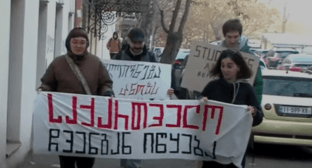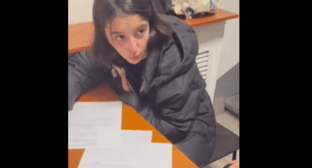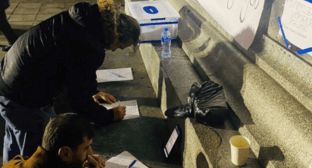03 August 2005, 14:46
'The difference is I am Chechen'
Zaur Musikhanov, a former member of an illegal armed formation, sentenced by the Supreme Court of Chechnya for nine years in hard labour camp for banditry, carrying of arms, and illegal deprivation of freedom, writes about the unjustness of his sentence in a letter to his mother, its content provided to Caucasian Knot by his lawyer Stanislav Markelov.
"I am not guilty of a crime, I have never in my life robbed, murdered, abducted, or taken part in a single operation with grave crimes. I can quite understand that banditry and illegal armed formations are absolutely different crimes with different tasks. Those two guys (Zaur Musikhanov detained two residents of a village for a short period of time, so that they could not tell federal forces that a separatist unit was coming - ed.) I treated as good friends, I never wore a mask and I told them where I am from, what family I am from and where I live," the convict writes in his letter.
"I told them: Dear jury! I ask you to take into account what prompted me to join the illegal armed group. On 2 October 1999, my family and I buried eight our relatives in one day. Among them was my aunt, she was 37, my sister, 16, my uncle, 40, my nephew, 3, and other relatives. They were killed when they were sitting in a basement and another seven were wounded. My parents, my wounded cousin who was not able to stand on his feet during six months, and I left for Ingushetia," Zaur describes his speech at the trial.
"Your Honour: I would like to ask you who personally will be responsible to us for death of our eight relatives and who will make up for the mutilated life and soul of our wounded people?" the former rebel continues to quote his speech at the trial. "What was their guilt? Why, those were people, the most peaceful residents in our village aged three to 45. And everyone wants to live so much. For example, Budanov, a general. A general can't be insane, and he was given 10 years for such a cruel murder and rape. Why am I given nine years? Because I built a dug-out? And Ulman was acquitted! Who of us is a criminal - is there a difference? The difference is I am Chechen."
Zaur Musikhanov, resident in Urus-Martan, Chechnya, was a member of an armed separatist unit between August and October 2002. In February 2003, he voluntarily gave himself up to the local police. After that, it was suggested that he should join the security service under Ramzan Kadyrov's command. Together with a friend of his, he refused, after which they were arrested and a criminal case was opened against them.
The Russian Duma announced an amnesty on 6 June 2003 "on the occasion of passing of the Constitution of the Chechen Republic." That amnesty legally applied to Zaur Musikhanov. However, the word "band" (which actually means "gang" - ed.) began to be inserted as an explanation of the word combination "armed group" which he was previously charged with being a member of. This is how he got to be charged with banditry under Article 209 of the Russian Criminal Code to which the amnesty did not apply.
"During my work in Chechnya, I am repeatedly told about facts of denying amnesty when former rebels refuse to join Kadyrov's armed groups, but this is the first case when the fact of illegal non-use of an amnesty is documented," Zaur's lawyer told Caucasian Knot.
"The Supreme Court of Chechnya sentenced Zaur Musikhanov to nine years in hard labour camp on 24 September 2004. The Russian Supreme Court sustained the sentence on 27 April 2005, without even mentioning my demand of applying the amnesty in the text of its decision," notes Stanislav Markelov.
"Moreover," adds the human rights defender, "the text directly says that Musikhanov and his accomplice have been established to be guilty of 'participation in a band, murder of police officers and civilians in Martan-Chu on the night of 4 June and on the night of 16 August 2002.' Meanwhile, Zaur Musikhanov joined the armed unit on 7 August 2002, which is marked even in the sentence of the trial court. Murders of police officers and civilians are not even mentioned in the trial court's sentence. Thus, the Russian Supreme Court on its own, arbitrarily, broadened the corpus delicti both in time and criminated offences."
Author: Vyacheslav Feraposhkin, CK correspondent




